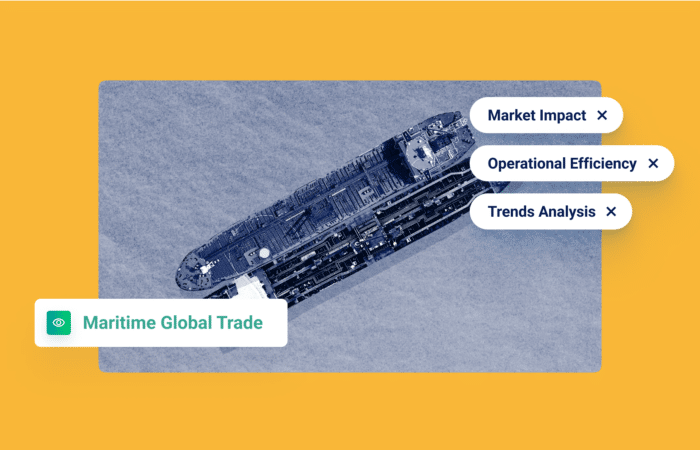What’s inside?
North Korean sanctions evasion practices are only getter more sophisticated and more advanced.
The last eighteen months have been a watershed for sanctions compliance. OFAC’s May 2020 advisory took center stage in the regulatory environment. And the industry reacted almost without missing a heartbeat. Compliance teams onboarded new tools and systems to cope with the increased expectations. Just as quickly as the advisory came in, it became the new operating standard. More than a year later, the latest UN Panel of Experts on the Democratic People’s Republic of Korea (DPRK) report has made it clear that we can forget about the status quo. Eighteen months might not sound like a lot. But in the world of bad actors, a lot can happen.
The UN Panel of Experts weighs in on North Korean sanctions trends
Bad actors and regulators are in a constant arms race. While compliance professionals constantly develop new tools, sanction evaders perfect their craft by studying new ways to circumvent detection. Since the 1874 resolution of 2009 by the Security Council, the UN Panel of Experts on DPRK has been investigating the evolution of deceptive shipping practices and tactics to avoid North Korean sanctions. In the latest issue, if one thing is clear, it’s this: identity-related deceptive shipping practices should be a global concern to all compliance professionals.
And yet, these practices were barely mentioned by regulators in the OFAC advisory. What does this mean? Deceptive shipping practices like dark activity are well-known to the market. But this past year, bad actors have upended the expectations set by regulators – specifically targeting identity-related tactics to slip by detection. This was made undeniably clear by the Panel of Experts’ recommendations. Rather than focusing on loitering or flag hopping cases, the report focuses on much more challenging schemes to catch.
Raising the sanctions bar
Regarding identity laundering, among other checks, the Panel stated the importance of identifying laundered AIS digital profiles used as cover identities to raise caution against trading with such ships. They also highlighted the importance of documenting up-to-date vessel identifiers, supported with photographs of the exterior and interior of their vessels. And while stakeholders in the commercial market might disregard this as the flag registries’ responsibility – when a vessel transmits regardless of its registration, the responsibility trickles down the entire value chain. Take the Mongolia flag registry as an example – hitting the news with cases of fraudulent use.
Now more than ever, bad actors are hiding their true location and identities and transmitting fraudulent information.
Palau, Cameroon, Mongolia, Sierra Leone were all listed by the Panel for laundering cases and fraudulent transmissions. As this becomes the new MO – compliance teams, not just flag registries, need to find ways to set up adequate controls. The OFAC advisory could not have predicted that manipulation tactics would evolve so quickly or cases to increase so rapidly. Still, the UN Panel has thrown the potential risk into the spotlight, emphasizing a whole new level of North Korean sanctions evasion activity.
The recommendations also go on to provide guidance on information sharing, stating that “the misuse of MMSIs is a trend affecting various flag registries” and urging stakeholders to investigate vessels transmitting fraudulent identifiers. But how should registries, or for that matter shipowners, charterers, or any other stakeholder in the maritime ecosystem, run such investigations? If going by OFAC’s advisory is not enough, then what should compliance teams look out for? If it wasn’t something that could result in a major hit to reputation and business, perhaps the solution could be to continue with the mindset of 2020 – but 2021 has raised the bar for every stakeholder. That’s why leaders in sanctions compliance, leverage our system to investigate the latest threats.
North Korean sanctions investigations that matter
At first, dark activity was the name of the game. But since dark activity has been around for so long, any tracking system is quick to red-flag it. On the other hand, identity manipulation, spoofing, and identity swapping are more likely to go undetected.
We supported over 20 North Korean sanctions evasion cases listed by the Panel. Take the case of just one of these. The Billions No.18 (IMO: 9191773) was designated on December 28 2017 over a ship-to-ship transfer of refined petroleum with a DPRK tanker.
A month later, its AIS transmission disappeared. For traditional tools, perhaps that would have been the end of the story. But Windward’s system revealed that following this, the vessel tampered with its AIS, swapped into a new fraudulent identity, and went through an identity laundering process. Windward follows a vessel’s entity over time regardless of transmitted changes. And we leverage all three aspects of a vessel’s identity – registry information from providers, digital data from the best AIS coverage in the market, and physical information via satellite imagery. Thanks to this, the Panel was able to reveal the true nature of the vessel’s ‘disappearance’.
North Korea is a useful case study for global trends in sanctions evasion
After all, bad actors are quick to share best practices. Windward played a central role in supporting the Panel’s investigations of North Korean sanctions evasion practices, like identity laundering. But in no way are these cases isolated – which is why our models are continuously trained on thousands of real-time cases. In this way, our system identifies the latest sanctions evasion trends, for every one of our customers.







